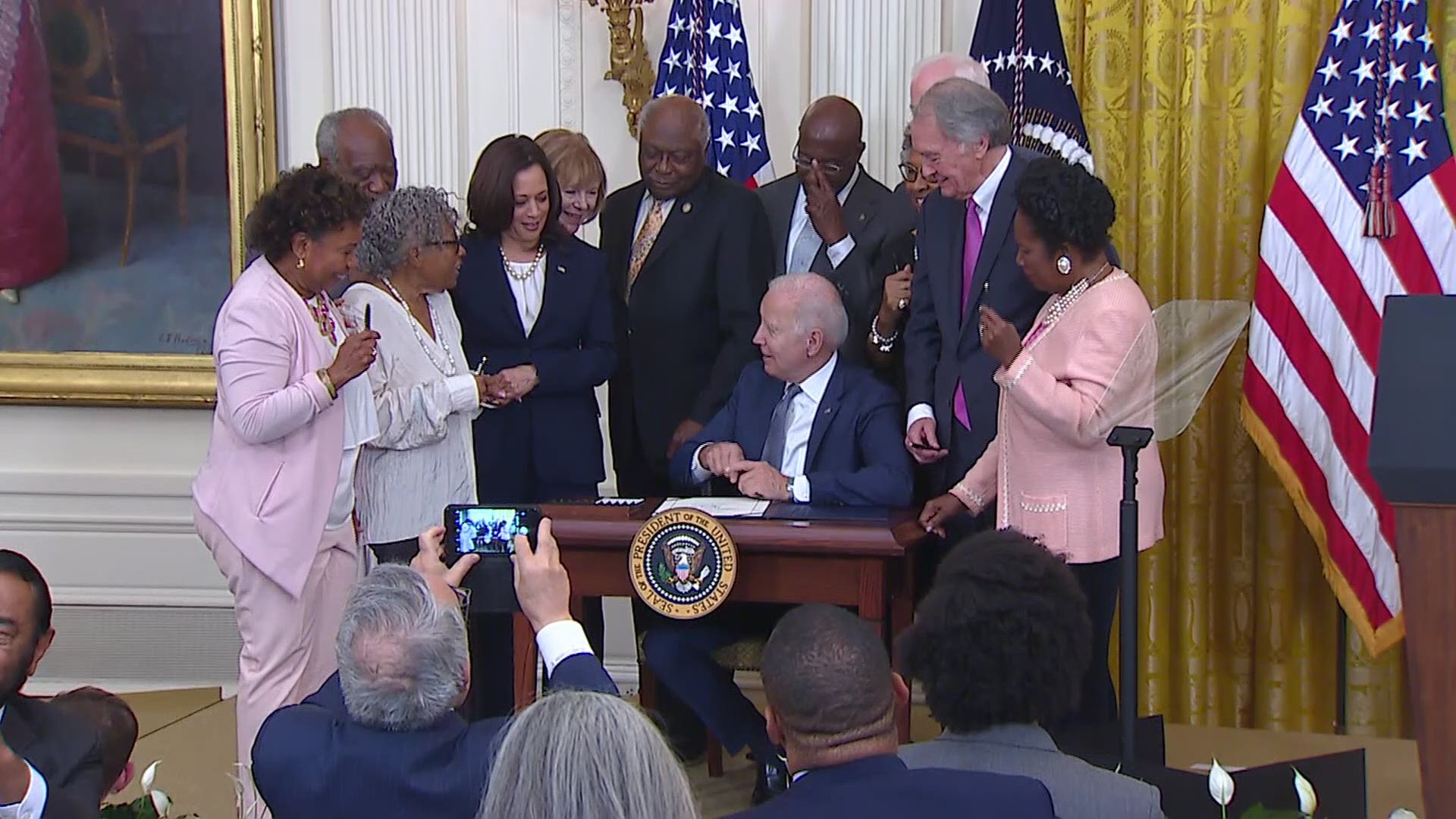WASHINGTON — For Dr. Ravi Perry, chair of political science at Howard University, the moment in the East Room when Juneteenth became a federal holiday was both poignant, but perhaps, performative.
“If I want to be optimistic, this is a first step that creates opportunities for further engagement and more education around issues that matter to African-Americans and Black contributions to this country,” Perry said in an interview Thursday.
“But what I find frustrating, is if you can do this so quickly, why can’t we do so many other substantive things that actualize the promises of democracy Dr. Martin Luther King, Jr. talked about?”
Perry is a scholar of Black politics and political representation, who immediately recalled the words from Dr. King during the 1963 March on Washington.
“This is no time to engage in the luxury of cooling off or to take the tranquilizing drug of gradualism,” King declared from the Lincoln Memorial. “Now is the time to make real the promises of democracy.”
As President Joseph R. Biden signed the Juneteenth National Independence Day Act into law, he acknowledged a current struggle for voting rights, echoing Dr. King’s “urgency of now” spoken nearly 58 years ago.
“This day doesn't just celebrate the past, it calls for action today,” Biden said. “Folks, the promise of equality is not going to be fulfilled until we become real… It’s not going to be fulfilled as long as our sacred right to vote remains under attack.”
Since the beginning of the year, lawmakers have filed nearly 400 bills across 48 states restricting voting rights. The measures generally limit the lengths of time, places, and methods by which people may cast their ballots.
The bill which codified Juneteenth as a national holiday sailed through Congress in a matter of days this week, carrying near unanimous support. Yet the fate of far more complex voting rights legislation within the Capitol remains unclear.
“There’s the For the People Act to expand voting rights, and the John Lewis Voting Rights Act would require states to have federal pre-clearance if they wanted new voting restrictions," Perry said.
“We're seeing a major chance to resolve these challenges, going beyond what we celebrate this Juneteenth, already at the doorstep of Congress."

